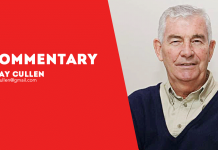By ROMEO F. QUIJANO, M.D.
Imperialism is driven by the pressure of capital for external fields of investment. The recurrent crises of overproduction and subsequent diminution of profits and stagnation of capital leads to ever-increasing pressure to expand markets and territories. The tendency for investors to work towards the political annexation of countries which contain their more speculative investments is very powerful.
Imperialism is seen as a necessity by the capitalists so they can continue to accumulate wealth. Capitalist greed was hidden behind the curtain of “manifest destiny” and “mission to civilize colonized people”.
It was the Robber Barons of the time, the likes of Rockefeller, Morgan, Carnegie, Cooke, Shwab, Fisk, Harriman and their ilk who actually needed Imperialism and who were fastening it upon the shoulders of the government. They used the public resources of their country for their capitalist expansion.
Imperialism, therefore, was adopted as a political policy and practice by the government which was controlled by the business elite. The Government and private corporations sought ways to maximize profits. Economic expansion demanded cheap labor, access to or control of markets to sell or buy products, and extraction of natural resources. They met these demands through plunder and tyrannical rule.
However, the imperialists experienced excess diseases and deaths among their troops, civil servants and traders. They had to do something about it.
With the advent of the “Germ Theory” of disease, it was believed that these diseases and deaths were caused by infectious organisms. This belief led to the development of drugs and vaccines that the colonial powers wholeheartedly embraced. That was the beginning of Big Pharma.
Initially the advances in medicine were introduced for the protection of colonial troops and civil servants, then for the local people working for the colonial power and eventually for the whole population. Improved health care was also included with the provision of hospitals and, as for the other measures, these were initially for the military, then for expatriates and finally for the local people.
The pioneer pharmaceutical companies of that time and the financial elite clearly saw the huge profits to be made from vaccination and the provision of pharmaceuticals. Among the most cited justification for colonial rule is the introduction of “modern health care” to the subjugated people. Thus, health became an instrument of pacification of the oppressed and the people were made to believe that colonialism was good for them.
However, the introduction of health care technologies like vaccines and drugs are really not out of altruistic intentions of the colonial power but more for the satisfaction of the imperialist’s plunderous desires. In fact, systematic public health regimes originated as military programs in support of imperialist expansion.
Private charities entered the field as colonial conquests were consolidated. The colonizer was more concerned with maximizing the exploitation of imperialized labor and extraction of the natural resources of the conquered people.
Since then, the elimination or control of disease in tropical countries became a driving force for all colonial powers.
In the colonized world, public health measures encouraged by Rockefeller’s International Health Commission yielded increases in profit extraction, as each worker could now be paid less per unit of work, “but with increased strength was able to work harder and longer and received more money in his pay envelope”.
Rockefeller’s research programs promised greater scope for future US military adventures in the Global South, where occupying armies had often been hamstrung by tropical diseases.
The Rockefeller programs did not concern themselves with workers’ physical productivity alone. They were also intended to reduce the cultural resistance of “backward” and “uncivilized” peoples to the domination of their lives and societies by industrial capitalism.
***
The author is a retired professor of the Department of Pharmacology and Toxicology at the College of Medicine, University of the Philippines-Manila (Bulatlat.com)

